- Sponsored -
Telangana: A Policewoman’s Fight Against Fake News On WhatsApp
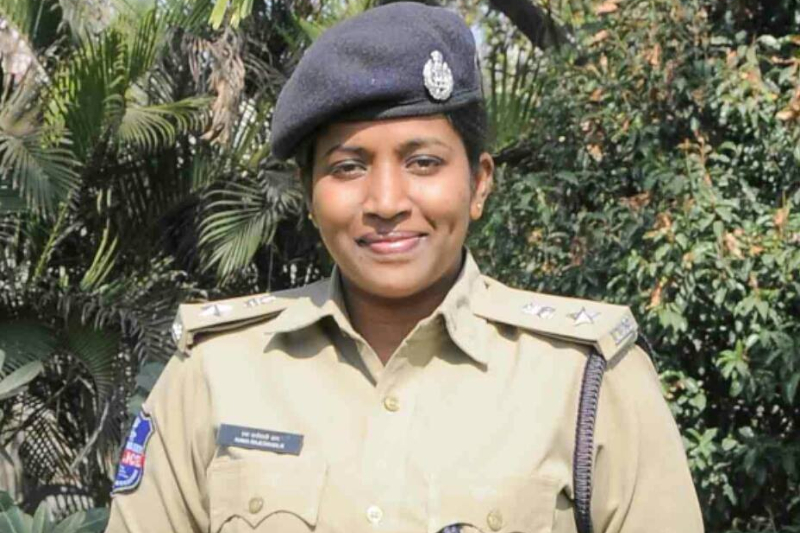
Social media has become an integral part of our lives, and is a great resource to stay in touch, share articles and put out your views on everything. As we all know that most of Indians can’t survive without ‘Chai’ (tea) and ‘Samachar’ (news) but now the news is been replaced with WhatsApp because we get up and first thing that comes in our hand is the smart phone to go through latest updates.
- Sponsored -
However, all the updates are not reliable to be on and are most of the time half baked news like some random epidemic is spreading due to XYZ virus with ugly Photoshop images. These updates not only scares you to death but also creates unnecessary tension which can lead to fatal situation.
Across India, social media rumors have caused rural villagers to patrol in anxious groups on the look-out for anyone they don’t recognize. These mobs have already killed numerous people. In May and June alone, at least six people died in Whats App-related mob attacks in eastern Assam, western Maharashtra and southern Tamil Nadu.
So Rema Rajeshwari is an Indian Police Service officer serving in the State of Telangana. She is conducting a education campaign to aware villagers about the evils of fake news.
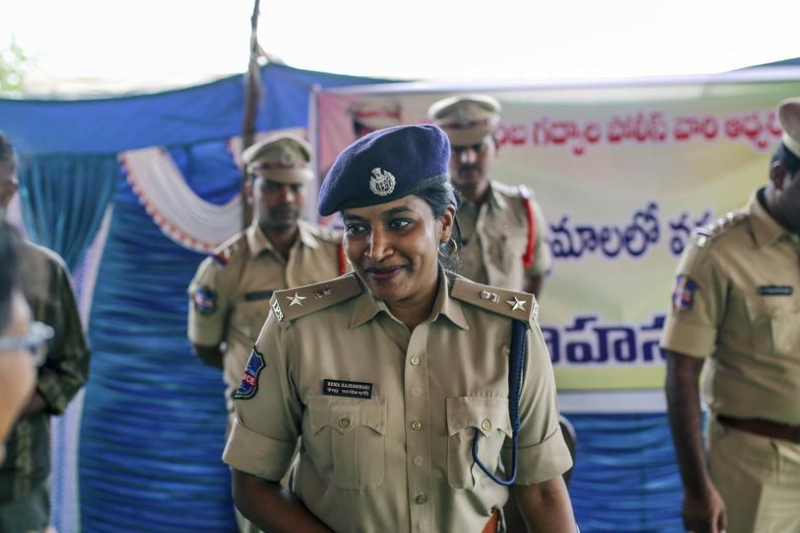
Local musicians are already singing about the evils of fake news when police superintendent Rema Rajeshwari’s convoy rolls up to the dusty village square in one of India’s poorest communities. “Don’t believe these things,” a performer cries out to the crowd.
In a dark blue cap and stiff khaki uniform, Rajeshwari climbs onto a makeshift stage in front of hundreds of villagers. She’s there to try and stop the spread of bogus WhatsApp messages in her district that warn of child kidnappers and roving murderers.
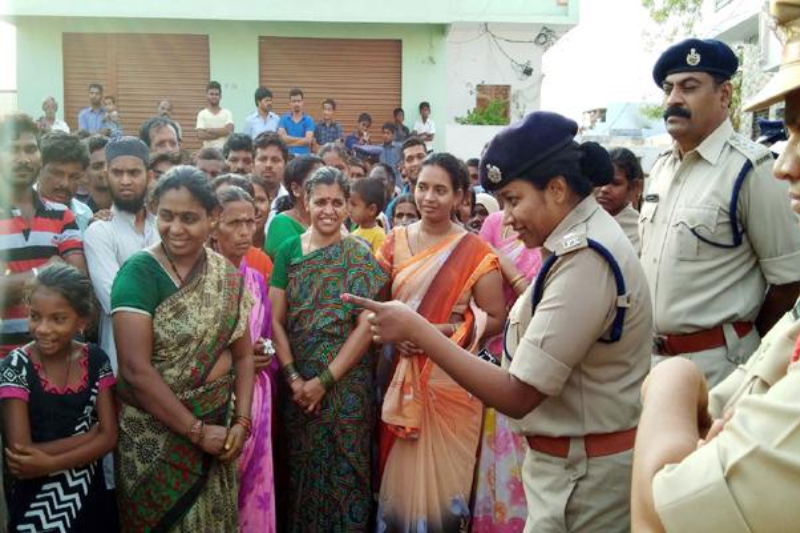
“You see these messages, these photos and videos, but you don’t check if they’re real or fake, you just forward them,” Rajeshwari tells them. “Don’t spread these messages. And when strangers come to your village, don’t take the law into your hands. Don’t kill them.”
With an election due in 2019, some worry a surge of fake, politicized messages could lead to more violence, stoking broader Hindu-Muslim tensions and sparking riots. The stakes are already high–Prime Minister Narendra Modi’s party is facing declining support, while opposition parties are planning to combine forces to take him on. Rajeshwari said she saw a spike in messages around recent state elections in the neighboring state of Karnataka, and fears more ahead of national polls.
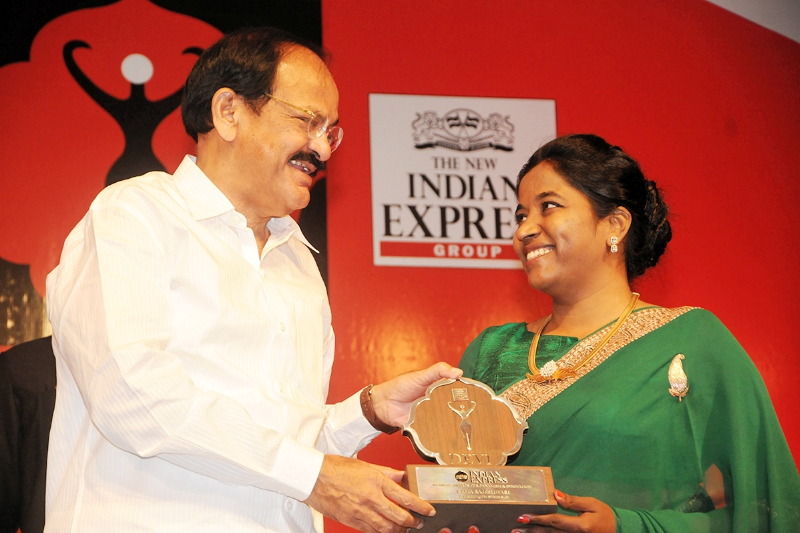
But something surprising is happening here. Rajeshwari’s education campaign seems to be working. There’s been no fake news-related deaths in more than 400 villages under her control in the southern state of Telangana. At a time when governments around the world are wrestling with fake news, Rajeshwari’s efforts offer a local remedy to a global situation.
While U.S. President Donald Trump and others use the term “fake news” to discredit negatives stories, false messages are sowing chaos in India’s villages through Facebook Inc.’s WhatsApp messaging service, which has more users in India than any other country.
WhatsApp spokesman Carl Woog said some use the messaging service to spread “harmful misinformation,” but added the company is trying to make that more difficult ahead of India’s next election.
“We’re working to give people more control over group discussions and are constantly evolving our tools to block unwanted automated content,” said Woog, who is based in San Francisco. “In the run up to next year’s elections we will step up our education efforts so that people know about our safety features and how to spot fake news and hoaxes.”
These bogus messages can be particularly dangerous in India, said Michael Kugelman, a senior associate for South Asia at the Woodrow Wilson Center in Washington.
“This is a country where the tendency of nefarious actors to use social media to exploit deeply held societal prejudices increases the likelihood of violent outcomes,” Kugelman said. “The possibility of politicians trying to smear their opponents via WhatsApp rumors could lead to all types of nastiness and raises the specter of political violence.”
In Rajeshwari’s district, fearful videos and photos spread on cheap smartphones have created mass wildness, causing villagers to form stick-wielding vigil to harass strangers.
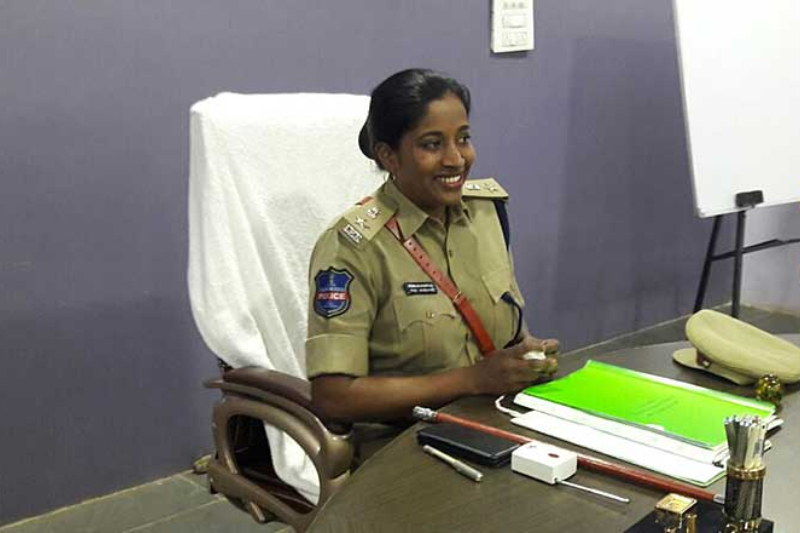
Against these odds, her war against fake news seems impossible to win — more than 200 million Indians use WhatsApp to send 13.7 billion messages each day, according to Neha Dharia, a former Ovum analyst and consultant in Bangalore.
And if any part of India is vulnerable, it’s the 5000 square-kilometers of Rajeshwari’s district in Telangana’s Palamuru region. The local literacy rate hovers around 50 percent, roughly 25 percent below the national average, and the area has a history of political violence.
On social media, this means that we tend to not see anything that we do not agree with, and accept everything that goes with our beliefs at face value. This is the major factor that results in the spread of silly misinformation. Hence next time you see any dangerous misinformation then better you know where to search about it.
- Sponsored -
